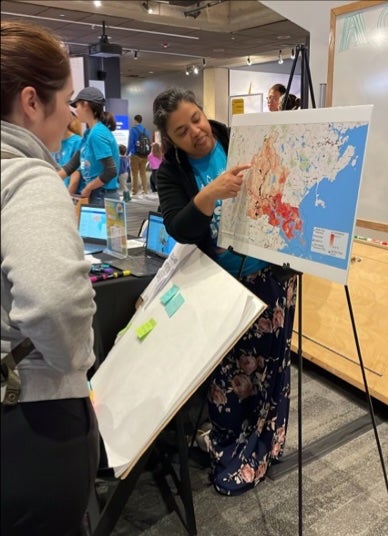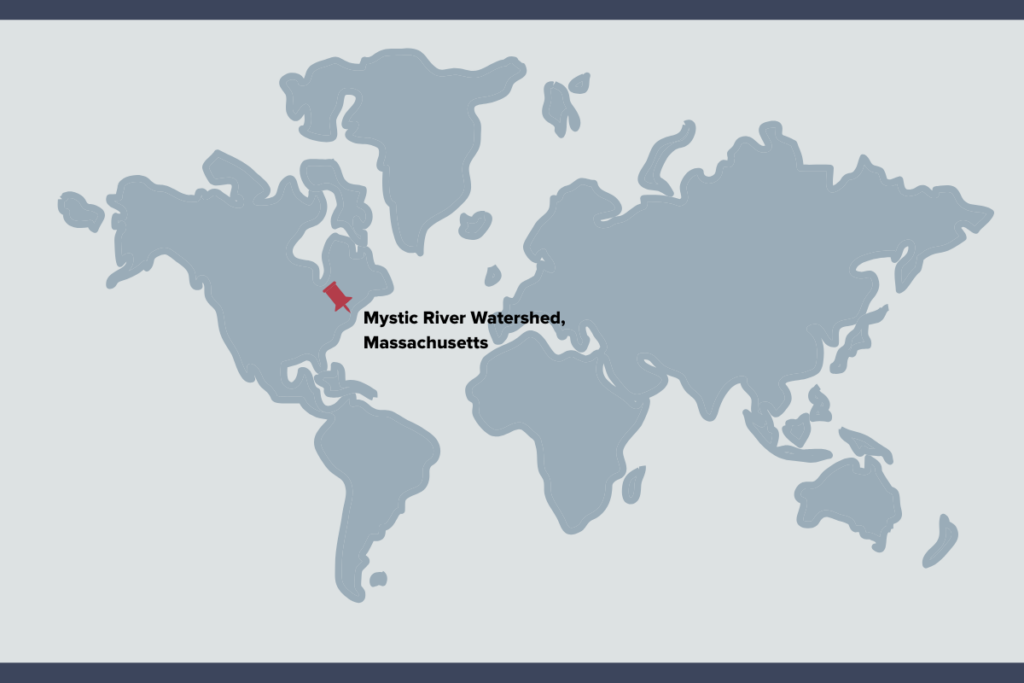Center for Climate, Health, and the Global Environment
We seek climate solutions that can provide for a healthier and more just world today and a livable future for our children.
Building 1, Room 1312
Helping Communities in the Mystic River Watershed Area Cope with Multiple Climate Challenges
Federal funding for this project was terminated in May 2025. We are actively fundraising to continue this work.
Impact level: Communities
Location: Mystic River Watershed, Massachusetts

What problem are we trying to solve?
Climate change is a risk multiplier. As climate hazards like heat and flooding become more extreme and common, we need to understand how they interact and how to build climate resilient communities that can better withstand cumulative hazards. For example, what happens when a flood event interacts with chemicals stored in an industrial facility, causing them to leak into the community, and residents have to deal with both crises at the same time?
We’re working to understand the health impacts from multiple climate stressors in the Mystic River Watershed area, including heat, flooding, chemical exposure from industrial sites, and traffic pollution.
Decision makers can use our data-driven tools to create policies that protect people who are vulnerable to cumulative climate hazards.
What climate and health solutions are we researching?
We’re working directly with municipal staff, community organizations, and local residents in the Mystic River Watershed to identify who is most at risk from cumulative hazards and chemical exposures and to quantify the health benefits of solutions that improve climate resilience in the community.
Our data and tools will help local decision makers prioritize policies and climate solutions that benefit the most vulnerable communities first.
What’s the level of impact?
This work impacts communities in the Mystic River Watershed.
Who will this research benefit?
We’re working in communities that neighbor the Mystic River Watershed, including Arlington, Belmont, Boston (Charlestown & East Boston), Burlington, Cambridge, Chelsea, Everett, Lexington, Malden, Medford, Melrose, Reading, Revere, Somerville, Stoneham, Wakefield, Watertown, Wilmington, Winchester, Winthrop, and Woburn. A majority of these communities include residents who are low-income and people of color.
This project will yield tangible benefits for people living in the Mystic Watershed and provide policy guidance for the EPA nationwide.
David Cash, Former EPA regional administrator for New England
Who are the collaborators, key partners, and stakeholders?
We are collaborating on this research project with a team of researchers at Boston University School of Public Health, as well as with the Greater Boston-based Mystic River Watershed Association (MyRWA), to better understand how communities are impacted by climate stressors and how to build climate resilience.
Researchers are working closely with the Resilient Mystic Collaborative (RMC) to engage with local residents and elicit their priorities and solutions to advance health and health equity.
As a student at BUSPH, I learned that community power can be built through research…What an exciting opportunity to blend top-notch academic research with on-the-ground lived experiences to help people stay safe from chemical exposures.
Mariangelí Echevarría-Ramos, Climate Resilience Manager at MyRWA
Where is the research happening?

What data resources can people use as a result of this project?
Residents, researchers, and policymakers can learn about cumulative exposures in the Mystic River Watershed using the publicly available ACRES’ data dashboard.
Learn more
To get in touch with the research team, contact Anna Miller.